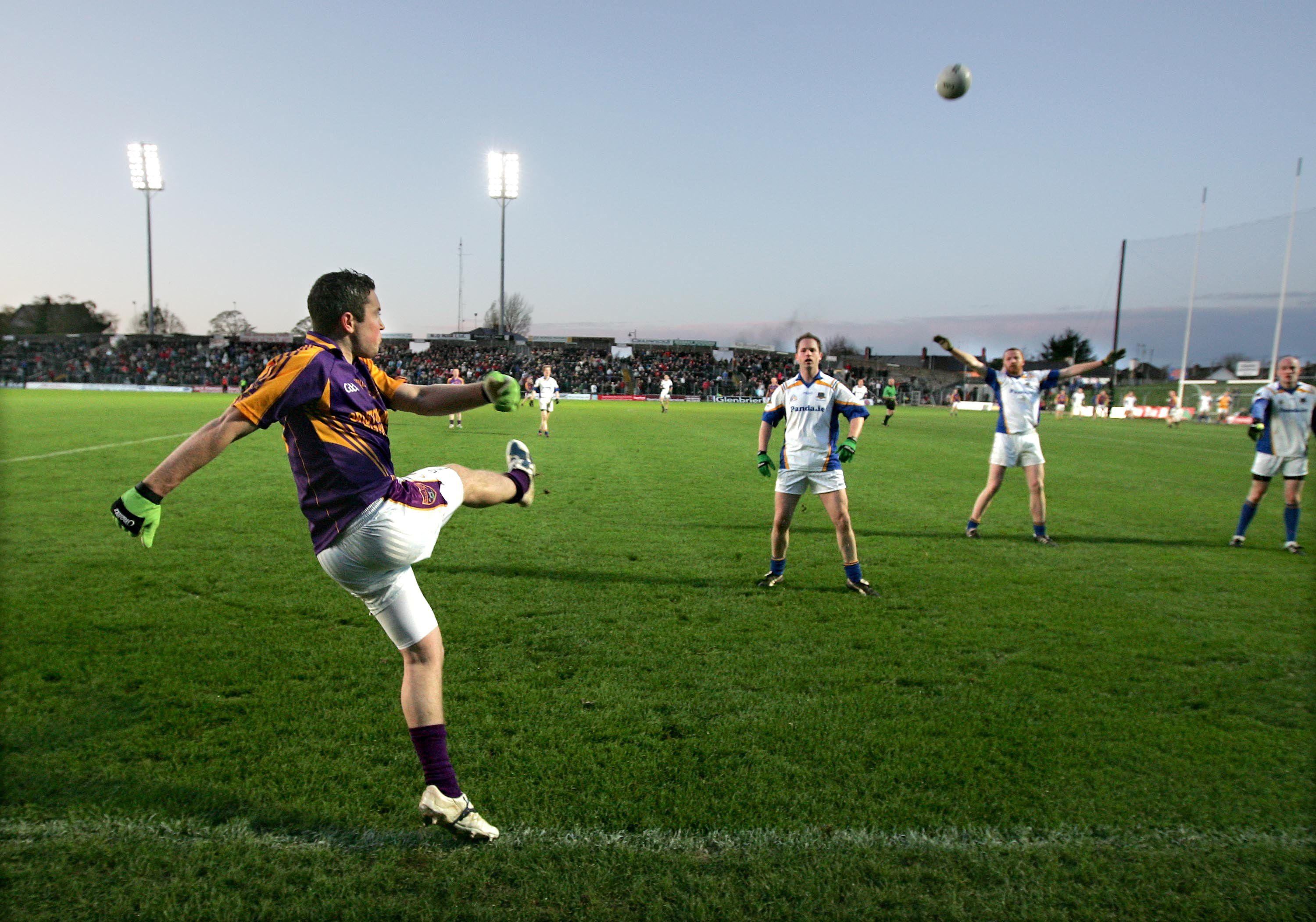

Share
30th May 2017
11:52am BST

 "My last game with Portlaoise was in 2011. I made peace with the club this year because a friend of mine is over in the intermediates and I was going to play intermediate. Portlaoise have a really strong intermediate team... I'm back down living in Portlaoise, I've cleared everything with Portlaoise, that aggro I had with them. I hadn't played with Portlaoise in six years," said Parkinson.
Parkinson obviously hadn't thought about the possibility of returning to his club to play Intermediate football in the intervening years, because, simply, why would he have? You can't plan for things like this, sometimes it just happens that you have a longing to return to play for your club after a few years' leave, or an injury, or work commitments mean that you can only commit to the lower grade.
He is now 39 and, as you would expect, doesn't see himself fit to make the commitment to senior football. He would like to join up with the intermediates, however, because he feels that his work schedule and his ageing body would be more suited to that level of football. Rule 6.14 doesn't allow this.
"I got a phone call from the Portlaoise intermediate manager who told me that the Laois County Board are not allowing me to play intermediate," he stated.
"I said 'why is this now?' He said 'the last game you played for Portlaoise was senior and you have to be regraded.'
"I'm 39 next month, I mightn't even make this intermediate team. I haven't kicked a ball since 2011 and I can't play intermediate. I have to play senior this year because the regrading has to be done before February 28th. Did you ever hear the likes of that?" asked Parkinson.
"My last game with Portlaoise was in 2011. I made peace with the club this year because a friend of mine is over in the intermediates and I was going to play intermediate. Portlaoise have a really strong intermediate team... I'm back down living in Portlaoise, I've cleared everything with Portlaoise, that aggro I had with them. I hadn't played with Portlaoise in six years," said Parkinson.
Parkinson obviously hadn't thought about the possibility of returning to his club to play Intermediate football in the intervening years, because, simply, why would he have? You can't plan for things like this, sometimes it just happens that you have a longing to return to play for your club after a few years' leave, or an injury, or work commitments mean that you can only commit to the lower grade.
He is now 39 and, as you would expect, doesn't see himself fit to make the commitment to senior football. He would like to join up with the intermediates, however, because he feels that his work schedule and his ageing body would be more suited to that level of football. Rule 6.14 doesn't allow this.
"I got a phone call from the Portlaoise intermediate manager who told me that the Laois County Board are not allowing me to play intermediate," he stated.
"I said 'why is this now?' He said 'the last game you played for Portlaoise was senior and you have to be regraded.'
"I'm 39 next month, I mightn't even make this intermediate team. I haven't kicked a ball since 2011 and I can't play intermediate. I have to play senior this year because the regrading has to be done before February 28th. Did you ever hear the likes of that?" asked Parkinson.
 Parkinson is only one out of a number of club players around the country who are affected by this rule which, simply, has a blatant lack of flexibility.
There shouldn't be any need for a regrading rule or cut-off date in the GAA. Why would a player aim to play at a lower level? It's not as if GAA players dream of playing with their club's second or third team instead of the first team.
Parkinson is only one out of a number of club players around the country who are affected by this rule which, simply, has a blatant lack of flexibility.
There shouldn't be any need for a regrading rule or cut-off date in the GAA. Why would a player aim to play at a lower level? It's not as if GAA players dream of playing with their club's second or third team instead of the first team.
"No club is going to hold back a load of players from their first team so they could win a second team Championship. The rule is ridiculous," said former Meath footballer Cian Ward.Ward went on to claim that he was affected by the rule during his club career with Wolfe Tones. He argued that, in the instance of a player wishing to drop down a grade, be it to intermediate or junior level, there is always a unique reason for their decision. For example, a player who had emigrated to work in a different country for a few years. If this player played at senior level before they left the country, and returns a few years later, without training, and wishes to climb back up their club's ladder by playing intermediate or junior, they can't do so if they miss the cut-off date. Parkinson went on to claim that he would understand the rule more if the rule was in operation for one year only, but this notion was quickly shut down by Ward.
"That's rubbish anyway because there could be any number of reasons why you can't play senior. You could have work commitments that prohibit your ability to train. "It actually happened to me where I missed the first round of our club Championship with a pulled hamstring and I wasn't allowed to play second team Championship, which to me was ridiculous. "I should've been allowed to play the game, I wasn't fit for the first round of Championship, therefore I wasn't on the team, I was available for selection for my club, I should be allowed to be picked on any club team that's playing a match that I was eligible for and you know, I just don't see the point of it."
 All in all, it just doesn't make sense.
"The GAA is prohibiting someone from playing GAA. You want participation numbers and you want lads playing and you've a county board saying you can't play, you're out," said Parkinson.
All in all, it just doesn't make sense.
"The GAA is prohibiting someone from playing GAA. You want participation numbers and you want lads playing and you've a county board saying you can't play, you're out," said Parkinson.Explore more on these topics: